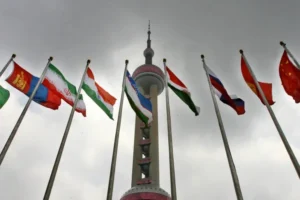Labour Party Charges Businesses £55K for Access at Annual Conference
The U.K.’s ruling Labour Party is reportedly offering businesses a premium opportunity to engage with ministers during its upcoming conference. For a staggering fee of £55,000, companies can secure a coveted ‘lunch slot’, providing intimate networking chances with key political figures. This move, despite a recent downturn in approval ratings, emphasizes the party’s commitment to monetizing its influence and maintaining close ties with corporate entities, reports 24brussels.
The offer comes at a time when the Labour Party needs to bolster its finances, which have reportedly been under pressure due to various factors impacting donor contributions. The conference, a significant event in the political calendar, will take place later this year, allowing businesses to capitalize on the visibility and association with Labour ministers during this crucial time.
Critics argue that such high-priced access highlights a growing concern about the commodification of political engagement, where monetary influence appears to overshadow democratic processes. Advocates of this initiative, however, see it as a pragmatic approach to ensuring that the party can effectively campaign and influence policy in a challenging economic landscape.
In addition to the lunch slots, the Labour Party has also planned a series of panels and discussions aimed at addressing pressing issues in the U.K., including the economy, public health, and education reforms. This multifaceted approach serves not only to engage stakeholders but also to showcase the party’s vision to the electorate.
As the political scene in the U.K. continues to evolve, Labour’s decision to charge for access reflects a broader trend where parties seek to balance their budgets while navigating the complexities of public perception. How this transparency will resonate with voters remains to be seen, but it undoubtedly sets the stage for intense scrutiny as the next election approaches.
The implications of this financial strategy could have lasting impacts on the party’s image and its relationship with grassroots supporters. While some see this as a necessary step toward financial sustainability, others worry that it could alienate the very base that Labour aims to represent. Ensuring that the party remains accessible and accountable will be vital as it moves forward with these ambitious plans.










